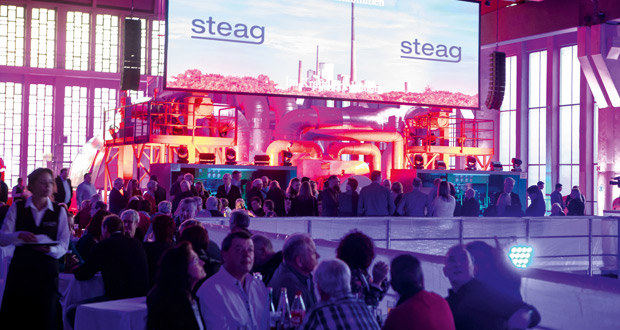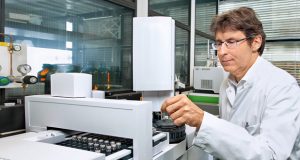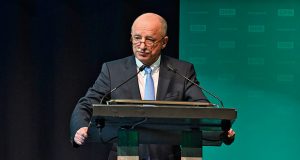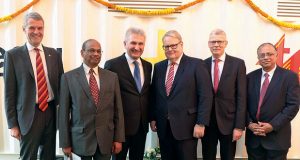It was an emotional evening in the historic machine hall of the STEAG power station, with a celebration that went into the early hours of the morning. Employees, family members, friends and former colleagues were invited to bid farewell to the founding location of Steinkohlen-Elektrizität AG (STEAG) on 19th January 2019 (Figure 1). On 31st December 2018, after almost 80 years of electricity generation in Lünen, coal-fired units 6 and 7 were taken off the grid once and for all.
More than 300 guests stood on the ground where STEAG first began generating electricity in 1940. Blue and red spotlights lit up the grand industrial hall for the celebration. The turbines, which were first taken off grid on 22nd December 2018, loomed in the background as sad reminders of the reason behind the event. Electricity generation at the site provided 101 jobs; that’s 101 career prospects.
The fact that the company and works council were able to cut jobs without any compulsory redundancies softened the blow somewhat. 48 employees are taking early retirement and 53 will be employed at other STEAG sites nearby.
In his speech, Joachim Rumstadt, Chair of the Executive Board at STEAG GmbH, Essen/Germany, thanked employees and emphasised, “We will continue to take corporate responsibility in Lünen and have a strong presence here.” Rumstadt referred to the state-of-the-art abrasives facility and the storage batteries that will continue to supply the important primary regulation energy for the power grid. The STEAG New Energies subsidiary in Lünen is also operating a biomass power station at Remondis. STEAG will also continue to be responsible for managing the state-of-the-art Trianel power station.
“All of this shows that STEAG is playing an important role in the revolution on the energy market,” said Rumstadt. Power station manager Kai-Uwe Braekler and Ralf Melis, Works Council Chairman of STEAG, then said goodbye to “their team”. Once the official part of the event was over, the common thread between all speeches – that as the founding location, Lünen had always been characterised by a strong sense of community and solidarity among the workforce – became clear to see, as they celebrated together until the early hours of the morning. (STEAG/Si.)



